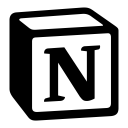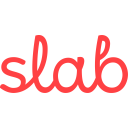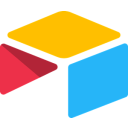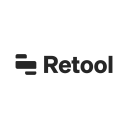Notion vs Slab: Choosing the best tool for your workflow
- 01Notion vs Slab: overview
- 02What's the difference between Notion and Slab?
- 03Notion pros and cons
- 04Slab pros and cons
- 05Notion compared to Slab
- 06Slab compared to Notion
- 07Features comparison
- 08Notion vs Slab: Which is the best for your business?
- 09Promotions on CRM software
- 10Alternatives to Notion & Slab
Save up to $6,000 on Notion
Save up to $6,000 on Notion
When it comes to managing and sharing knowledge within a team or organization, it's crucial to have access to robust tools that streamline collaboration and information management. The right platform can enhance communication, improve documentation efficiency, and ultimately lead to better productivity and decision-making.
Notion and Slab are two leading platforms in the realm of knowledge management and team collaboration. Both offer unique features that cater to different needs, making them powerful tools for organizing information, creating documentation, and fostering a culture of knowledge sharing within teams. In this article, we'll explore some of the key differences between Notion and Slab to help you make an informed decision and choose the best solution for your team’s knowledge management needs.
Notion vs Slab: overview
Notion and Slab are two prominent players in the realm of knowledge management and team collaboration platforms, each offering a distinctive set of features tailored to different organizational needs.
Notion is renowned for its all-in-one workspace approach, enabling teams to create, manage, and share a wide range of content—from documents and databases to project management boards and wikis. On the other hand, Slab is a specialized knowledge management tool designed specifically to enhance team documentation and knowledge sharing. Slab focuses on creating a clean, user-friendly interface that promotes easy access to knowledge, with powerful search capabilities and structured content organization.
Now, let's delve into the Notion vs. Slab comparison to assist you in making an informed decision when choosing the most suitable platform for your team's knowledge management and collaboration needs.
What's the difference between Notion and Slab?
Notion and Slab are both powerful tools designed to facilitate knowledge management and team collaboration, but they cater to different needs, and this distinction can guide your decision on which platform is best suited for your organization.
Notion is an all-in-one workspace that allows you to create, organize, and share content in a highly customizable environment. It’s ideal for teams that need a versatile tool to manage various types of content, from documents and databases to project management boards and wikis. Notion’s strength lies in its flexibility; you can tailor its interface and functionalities to match your workflow, whether you’re building a knowledge base, managing projects, or creating a shared team hub. It offers extensive integration capabilities, making it adaptable to a wide range of use cases.
Slab, on the other hand, is a specialized knowledge management platform with a primary focus on creating and maintaining structured, easy-to-navigate documentation. Slab’s interface is designed to prioritize simplicity and clarity, helping teams organize their knowledge in a way that’s accessible and user-friendly. Its search functionality is robust, allowing users to quickly find relevant information, and it integrates smoothly with other tools like Slack, Google Drive, and GitHub. While Slab may not offer the same level of customization as Notion, it excels in providing a clean, distraction-free environment specifically tailored for knowledge sharing and documentation.
The main difference between Notion and Slab lies in their level of customization and focus. Notion offers unparalleled customization, allowing teams to mold the platform to fit their unique needs, but this flexibility can involve a steeper learning curve. Slab, while less customizable, offers a more streamlined experience with a focus on simplicity and efficiency in knowledge management. This makes Slab particularly well-suited for teams that prioritize ease of use and straightforward documentation processes.
Notion pros and cons
What are the advantages of Notion?
- All-in-one workspace: Notion allows you to manage documents, tasks, databases, and more all in one place, reducing the need for multiple tools.
- Highly customizable: You can design pages and databases to suit your exact needs, with a wide range of templates, block types, and customization options.
- Collaboration features: Notion supports real-time collaboration, allowing team members to work together on documents, leave comments, and track changes.
- Cross-platform availability: Notion is available on web, desktop, and mobile platforms, ensuring that you can access your workspace from anywhere.
- Integration capabilities: Notion integrates with many other tools and services, such as Google Drive, Slack, and Trello, allowing for a more connected workflow.
What are the disadvantages of Notion?
- Steep learning curve: The flexibility and range of features in Notion can be overwhelming for new users, making it difficult to get started.
- Limited offline functionality: While Notion does offer some offline access, its functionality is limited when not connected to the internet.
- Performance issues with large databases: Notion can become slow and laggy when working with large databases or complex pages, impacting productivity.
- Pricing for teams: The free version of Notion is quite limited for teams, and the cost can add up quickly for larger organizations needing advanced features.
- Overwhelming flexibility: The vast customization options can be a double-edged sword, sometimes leading to disorganized workspaces if not carefully managed.
Compare Notion to other tools
Slab pros and cons
What are the advantages of Slab?
- Simple and clean interface: Slab offers a user-friendly, minimalist design that makes it easy to create and navigate content without distractions.
- Focused on knowledge management: Slab is specifically designed for documentation and knowledge sharing, making it ideal for teams that prioritize organized and accessible information.
- Robust search functionality: Slab's powerful search feature helps users quickly find the information they need, even across different documents and topics.
- Integration with popular tools: Slab integrates seamlessly with tools like Slack, Google Drive, GitHub, and others, allowing teams to connect their knowledge base with their existing workflows.
- Efficient collaboration: Slab supports collaborative editing, version history, and commenting, enabling teams to work together effectively on documentation.
What are the disadvantages of Slab?
- Limited customization: Slab's focus on simplicity means it offers fewer customization options compared to more flexible platforms like Notion, which may not meet all users' needs.
- Narrow use case: While excellent for documentation, Slab is less versatile for other types of content or project management tasks, limiting its use beyond knowledge management.
- Pricing for larger teams: Slab's pricing can become costly for larger teams or organizations that need extensive documentation and collaboration features.
- Dependence on integrations: Some functionalities that are standard in other platforms might require third-party integrations in Slab, which could lead to additional setup and management.
- Learning curve for advanced features: While the basic features are easy to use, more advanced functionalities, such as managing complex permissions or integrations, can have a learning curve.
Compare Slab to other tools
Notion compared to Slab
Notion and Slab are both powerful tools for team collaboration and knowledge management, but they cater to different needs. Notion offers a highly customizable workspace where users can create and manage documents, databases, and tasks in a single platform, making it ideal for teams looking for versatility and an all-in-one solution.
In contrast, Slab focuses specifically on documentation, providing a clean, simple interface designed for organized and accessible knowledge sharing. While Notion's flexibility allows for a wide range of uses, Slab excels in its ease of use and streamlined approach to managing team knowledge.
Is Notion better than Slab?
Whether Notion is better than Slab depends on your team's specific needs. Notion offers extensive flexibility and a broad range of features beyond documentation, making it ideal for teams that require an all-in-one platform to manage tasks, projects, and knowledge. Its customizable workspace allows users to adapt the platform to various workflows, offering versatility that Slab does not.
However, if your primary focus is on creating, organizing, and sharing documentation with simplicity and efficiency, Slab may be the better choice. Slab excels in providing a straightforward, user-friendly experience tailored specifically for knowledge management, making it more suitable for teams prioritizing ease of use.
What is Notion best used for?
Notion is best used as an all-in-one workspace for teams and individuals looking to centralize their work and streamline various processes. It excels in project management, note-taking, knowledge sharing, and task organization, offering a flexible environment where users can create customized workflows, databases, and collaborative documents.
Notion is particularly effective for managing complex projects, tracking progress, and storing information in a structured yet adaptable format. Its versatility makes it suitable for a wide range of use cases, from personal productivity to collaborative team efforts, all within a single, integrated platform.
Can Notion replace Slab?
Notion can potentially replace Slab, depending on your team’s specific needs and priorities. While both platforms offer robust knowledge management capabilities, Notion provides a more versatile, all-in-one workspace that goes beyond documentation to include project management, task tracking, and a variety of other functions. This flexibility allows teams to consolidate multiple tools into one platform.
However, if your primary focus is on creating, organizing, and accessing documentation with a clean, user-friendly interface, Slab might still be the better option. Notion's broader scope can sometimes lead to a steeper learning curve and less streamlined documentation compared to Slab.
Is Notion cheaper than Slab?
Notion’s pricing is generally more affordable than Slab, especially for smaller teams or individuals. Notion offers a free plan with basic features, making it accessible for personal use or small-scale projects, and its paid plans are competitively priced, offering a broad range of features for teams at a lower cost.
Slab, while offering a more focused experience for knowledge management, tends to be pricier, particularly for larger teams needing advanced documentation features. However, the cost-effectiveness depends on your specific needs; if your primary focus is on robust documentation, the investment in Slab may be justified despite its higher cost.
Is there a better CRM software than Notion?
When considering alternatives to Notion, it’s crucial to determine if another software might better meet your specific organizational needs.
Several strong competitors in the knowledge management and collaboration space include Slab, Confluence, Coda, Evernote, and Airtable.
Choosing the right platform depends on your team's goals, the complexity of your workflows, and the level of customization and integration you require. While Notion excels as an all-in-one workspace with extensive flexibility, other platforms may offer specialized features, such as advanced documentation management, enhanced database functionalities, or more industry-specific solutions, making them a better fit for certain use cases.
Slab compared to Notion
Slab is a focused knowledge management platform, designed specifically for creating and organizing documentation, while Notion is a versatile all-in-one workspace that supports a wide range of functions, including project management, note-taking, and database creation. Slab’s strength lies in its simplicity and ease of use, making it an excellent choice for teams prioritizing clear, accessible knowledge sharing.
Notion, on the other hand, offers greater flexibility and customization, allowing users to tailor their workspace to various needs. However, this flexibility can lead to a steeper learning curve, making Slab a better option for those seeking a straightforward documentation tool.
Is Slab better than Notion?
Slab can be considered better than Notion if your team’s primary focus is on efficient, straightforward documentation and knowledge sharing. Slab excels in delivering a clean, user-friendly interface that simplifies the process of organizing and accessing information. This makes it particularly well-suited for teams that prioritize ease of use and need a dedicated platform for knowledge management without the added complexity of project management or other features.
While Notion offers more versatility, Slab's focused approach ensures that users can quickly and easily manage documentation, making it a superior choice for teams that value simplicity and efficiency over flexibility.
What is Slab best used for?
Slab is best used for creating, organizing, and maintaining team documentation in a streamlined, user-friendly environment. It excels at knowledge management, allowing teams to centralize their information, making it easily accessible and searchable for everyone. Slab is particularly effective for teams that need a focused platform to manage internal documentation, training materials, and company knowledge bases.
Its clean interface, powerful search capabilities, and seamless integrations with other tools make it ideal for organizations that prioritize simplicity and clarity in their knowledge-sharing processes, ensuring that important information is readily available and well-organized across the team.
Can Slab replace Notion?
Slab can replace Notion for teams that primarily need a dedicated platform for documentation and knowledge management. Slab excels in providing a clean, intuitive interface focused on organizing and sharing information, making it ideal for teams that prioritize straightforward documentation.
However, Slab lacks the broader functionality that Notion offers, such as project management, task tracking, and customizable workflows. If your team relies on these additional features or needs an all-in-one solution for various types of content, Notion may be the better choice. Slab is best suited as a replacement when documentation is the central focus, but it may not fully meet the needs of more versatile workflows.
Is Slab cheaper than Notion?
Slab’s pricing plans are generally more expensive than Notion, particularly when considering the features and scale of use. Notion offers a free plan that includes basic functionalities, making it accessible for individuals and small teams, with paid plans that are competitively priced for larger teams and additional features.
Slab, on the other hand, focuses on delivering a specialized knowledge management experience, but its pricing reflects this focus, often making it a costlier option, especially for larger teams. While Slab provides a more streamlined documentation tool, its higher cost may be a consideration for teams evaluating budget constraints compared to Notion’s more affordable options.
Is there a better Collaboration software than Slab?
When evaluating alternatives to Slab, it’s important to consider whether another software might better align with your specific documentation and knowledge management needs.
Several notable competitors in this space include Notion, Slite, Google Docs, and Document360.
The choice of a knowledge management platform depends on your team’s goals, the complexity of your documentation, and the level of customization and integration required. While Slab excels in providing a focused, streamlined environment for documentation, other platforms may offer broader functionality, more advanced collaboration features, or greater flexibility, making them better suited for certain workflows or industry-specific requirements.
Features comparison
Notion Excels Over Slab in Visual Task Management and Tracking
When it comes to visually organizing and tracking tasks, Notion is the clear winner. Notion offers a suite of features designed for dynamic task management, including a task database, database gallery, and timeline view. These tools allow teams to not only track progress and deadlines but also create interactive, visual representations of their data. For instance, a team managing a product launch can use Notion’s timeline view to map out each phase, set dependencies, and ensure that all tasks are on track.
In contrast, Slab does not emphasize such detailed task management capabilities, focusing more on documentation and collaboration. While Slab is excellent for organizing knowledge and enhancing team communication, it lacks the robust visual tools that make Notion a superior choice for teams looking to manage and visualize tasks effectively.
Slab Shines Over Notion for User Interface and Ease-of-Use
When comparing the user interface and overall ease-of-use, Slab comes out on top compared to Notion. Slab is designed with a minimalist approach, offering a clean, intuitive interface that prioritizes simplicity and clarity. This makes it easy for teams to create, organize, and navigate documentation without feeling overwhelmed.
For example, users often find that Slab’s straightforward layout and powerful search capabilities allow them to quickly access important information without navigating through complex menus or settings. In contrast, while Notion is highly customizable, its flexibility can lead to a steeper learning curve, making it less immediately user-friendly than Slab.
Notion Leads Slab in Integration Possibilities
On the front of integration possibilities, Notion takes the lead ahead of Slab. Notion offers a broad range of integrations across various software categories, including communication tools like Slack, cloud storage solutions like Google Drive, project management platforms like Trello, and software development tools like Jira. This makes Notion a versatile platform that can seamlessly connect with different workflows across teams, whether they’re managing projects, collaborating on content, or tracking development tasks. For example, teams can link their Trello project management boards directly within Notion pages, ensuring that all relevant information, tasks, and updates are accessible in one centralized location.
In contrast, while Slab integrates well with essential tools like Slack and GitHub, its integration options are more limited, focusing primarily on documentation rather than a broader range of collaborative tools.
Notion Excels in Project Management Compared to Slab’s Documentation Focus
Notion shines when it comes to project management, offering a comprehensive set of tools that streamline the entire process. With the ability to create Kanban boards, assign tasks to team members, set up notifications, and track the progress of projects, Notion provides a robust project management solution that caters to both individual contributors and team leaders. For instance, a marketing team can use Notion to plan and execute a campaign, tracking each task’s status from inception to completion.
In contrast, Slab is more heavily focused on documentation and knowledge sharing, lacking the detailed project management features that make Notion a more versatile tool for managing complex projects.
Slab Excels Over Notion in Centralized Knowledge Management
While both Notion and Slab offer the opportunity to centralize knowledge, Slab takes the lead in this area. Slab is purpose-built for creating and scaling knowledge bases, simplifying every step of the documentation process. It excels in organizing and structuring information, making it easy for teams to access, update, and share knowledge seamlessly. For instance, companies use Slab to build comprehensive knowledge bases that grow with the organization, ensuring that critical information is always up-to-date and readily available.
In contrast, while Notion provides a platform for centralizing knowledge, it does not emphasize this function as its core purpose, instead focusing on versatility across various tasks and workflows.
Notion and Slab Offer Robust Template Features with Different Strengths
Both Notion and Slab offer excellent template features, but they cater to different needs and approaches. Notion stands out with its vast library of hundreds of templates, many of which are created by expert users and cover a wide range of use cases, from project management to personal productivity. These customizable templates allow teams to kick-start their work and maintain consistency across different projects. For example, a team could use Notion’s templates to set up a content calendar or track project milestones with ease.
On the other hand, Slab simplifies document creation with pre-built templates designed specifically for knowledge management. Whether you’re drafting a project plan or setting up a meeting agenda, Slab’s templates streamline the process, making it easy to create and organize documentation efficiently.
Slab Excels Over Notion in Version Control and Document Management
While both Notion and Slab provide editable documents, Slab stands out with its more robust and intuitive version control system. Slab allows users to keep detailed track of changes made to documents, offering a clear history of edits and the ability to easily revert to previous versions when necessary. This is particularly useful for teams working on complex projects where maintaining accuracy and consistency is critical.
For example, if a mistake is made or an older version of a document needs to be referenced, Slab’s version control ensures that no information is permanently lost. In contrast, while Notion supports document editing, it does not emphasize version control as a core feature, making Slab the superior choice for teams that require meticulous document management and version tracking.
Notion vs Slab: Which is the best for your business?
Notion is the best tool for you if:
- You need an all-in-one platform that combines note-taking, project management, and database functionalities, allowing you to streamline various aspects of your workflow in a single tool.
- Customization is important to you, and you want to create highly personalized workspaces with templates, Kanban boards, timelines, and more, tailored to your team’s unique processes and needs.
- You value seamless collaboration, where team members can work together in real-time on documents, tasks, and projects, with features like comments, mentions, and shared spaces.
- Integrating with a wide range of tools is essential for your workflow, and you need a platform that connects effortlessly with apps like Slack, Google Drive, and Trello.
- Visualizing tasks and data is crucial for your productivity, and you require robust features like timeline views, galleries, and databases to manage and track your projects effectively.
Slab is the best tool for you if:
- You prioritize a clean, intuitive interface focused on creating, organizing, and accessing team documentation with ease, without the need for extensive customization or additional features.
- Your team’s primary need is to build and maintain a centralized knowledge base, ensuring that information is easily searchable and accessible to everyone across your organization.
- You want powerful search capabilities that allow you to quickly find critical information across integrated tools like Slack and Google Drive, ensuring seamless access to all your team’s knowledge.
- Collaboration and knowledge sharing are at the core of your work, and you need a platform that simplifies communication and document management across your team.
- You prefer a focused tool that excels in documentation and knowledge management, without the added complexity of project management or task-tracking features that other platforms may offer.













